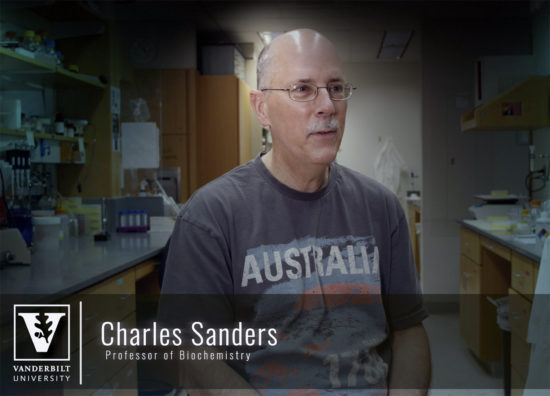NEWS
Gould appointed senior associate dean
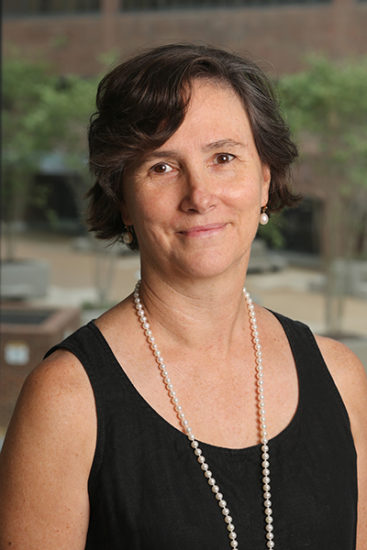 Kathy Gould (CDB), who previously served as associate dean for Biomedical Sciences, has been appointed senior associate dean for biomedical research, education, and career development. Gould, who has been at Vanderbilt since 1991, conducts research on the molecular basis of cell division, a highly conserved process central to development and tissue maintenance, and has spent considerable effort promoting and expanding the biomedical sciences graduate education program at Vanderbilt. Kathy Gould (CDB), who previously served as associate dean for Biomedical Sciences, has been appointed senior associate dean for biomedical research, education, and career development. Gould, who has been at Vanderbilt since 1991, conducts research on the molecular basis of cell division, a highly conserved process central to development and tissue maintenance, and has spent considerable effort promoting and expanding the biomedical sciences graduate education program at Vanderbilt.
Sealy to serve as senior advisor to the dean
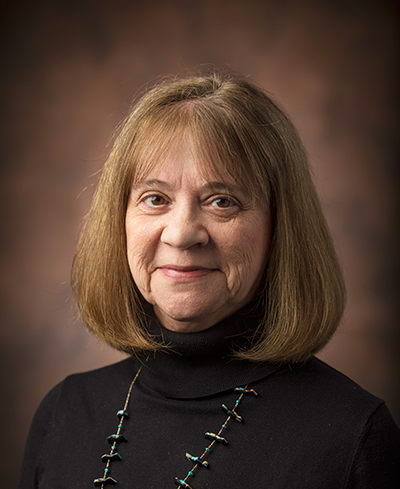 Linda Sealy, who served as the Basic Sciences associate dean for diversity, equity, and inclusion, will continue to serve our community following her retirement in August as Senior Advisor to the Dean for Diversity, Equity, and Inclusion. She will be focusing on increasing faculty diversity; advancing equity and inclusion through training to promote culturally aware, effective mentorship; leading a new coordinating committee for the newly formed department and program diversity and inclusion committees; providing education to trainees on bias through Fair Play workshops; and continuing to co-lead the Dean’s Advisory Council on Mental Health and Wellness. Sealy will continue to contribute to the Meharry-Vanderbilt-TSU partnership and Fisk-Vanderbilt Bridge Program and will continue to co-lead the IMSD program and the newly funded PREP postbac program. Linda Sealy, who served as the Basic Sciences associate dean for diversity, equity, and inclusion, will continue to serve our community following her retirement in August as Senior Advisor to the Dean for Diversity, Equity, and Inclusion. She will be focusing on increasing faculty diversity; advancing equity and inclusion through training to promote culturally aware, effective mentorship; leading a new coordinating committee for the newly formed department and program diversity and inclusion committees; providing education to trainees on bias through Fair Play workshops; and continuing to co-lead the Dean’s Advisory Council on Mental Health and Wellness. Sealy will continue to contribute to the Meharry-Vanderbilt-TSU partnership and Fisk-Vanderbilt Bridge Program and will continue to co-lead the IMSD program and the newly funded PREP postbac program.
Hiebert appointed NCAB acting chair
 Scott Hiebert (Biochemistry) has been appointed acting chair of the National Cancer Advisory Board, which comprises scientists hand-picked by the president of the United States. Hiebert was appointed to the board in 2016 by President Barack Obama. Scott Hiebert (Biochemistry) has been appointed acting chair of the National Cancer Advisory Board, which comprises scientists hand-picked by the president of the United States. Hiebert was appointed to the board in 2016 by President Barack Obama.
Estrada to lead AEE
 The Vanderbilt Academy for Excellence in Education has elected Lourdes Estrada (Biochemistry) as its new director-elect. She will serve in that role between 2020 and 2022 and serve as director between 2022-2024. The Vanderbilt Academy for Excellence in Education has elected Lourdes Estrada (Biochemistry) as its new director-elect. She will serve in that role between 2020 and 2022 and serve as director between 2022-2024.
New primary faculty in Basic Sciences
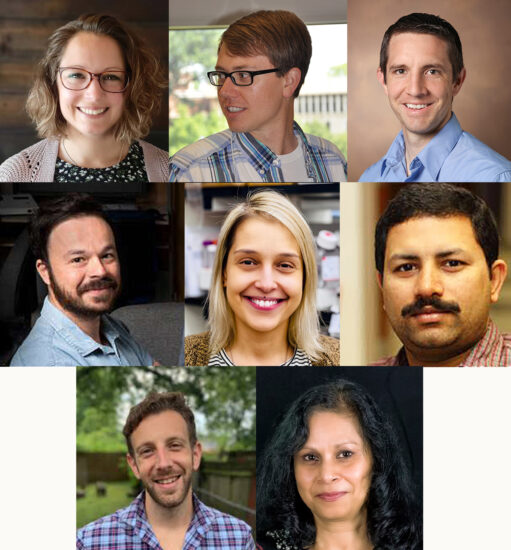
We’re bringing in fresh talent across our different departments. Take a look at a list of the most recent tenure-track and non-tenure-track faculty hires, and help us welcome them to campus:
- Biochemistry: Adjoint Associate Professor Naotoshi Nakamura (not pictured)
- Cell and Developmental Biology: Assistant Professor Kathy DelGiorno, Research Assistant Professor Gregory “Caleb” Howard, Research Assistant Professor Seth Taylor
- Molecular Physiology and Biophysics: Research Assistant Professor Rafael Arrojo e Drigo, Assistant Professor Elma Zaganjor
- Pharmacology: Research Assistant Professor Mohamed Ahmed, Research Instructor Max Joffe, Research Assistant Professor Minati Singh
Founding an Alzheimer’s research center
 The National Institute on Aging has funded a grant for neurology Professor Angela Jefferson to establish the first federally funded Alzheimer’s Disease Research Center at VUMC, adding to the network of 31 other ADRCs present throughout the nation. The center will include 35 faculty members from over 20 departments, centers, and institutes across campus, including Chuck Sanders (Biochemistry), who will be a leader within the Administrative Core, Paul Newhouse (Psychiatry and Behavioral Sciences), who will co-lead the Clinical Core, and Timothy Hohmann (Neurology), who will co-lead the Biomarker Core. The National Institute on Aging has funded a grant for neurology Professor Angela Jefferson to establish the first federally funded Alzheimer’s Disease Research Center at VUMC, adding to the network of 31 other ADRCs present throughout the nation. The center will include 35 faculty members from over 20 departments, centers, and institutes across campus, including Chuck Sanders (Biochemistry), who will be a leader within the Administrative Core, Paul Newhouse (Psychiatry and Behavioral Sciences), who will co-lead the Clinical Core, and Timothy Hohmann (Neurology), who will co-lead the Biomarker Core.
AWARDS
Siciliano funded by Cohen Innovation Fund
 The Stanley Cohen Innovation Fund has granted Cody Siciliano (Pharmacology) a $100,000 research award to bolster his work on the neural substrates of memory. The Stanley Cohen Innovation Fund has granted Cody Siciliano (Pharmacology) a $100,000 research award to bolster his work on the neural substrates of memory.
NSF to fund drug delivery research using EVs
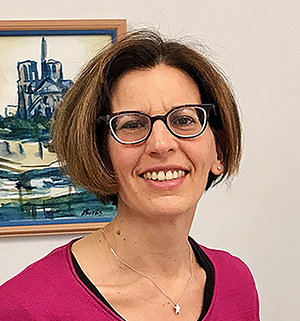 Vanderblt researchers, including Alissa Weaver (CDB) have received a $500,000 Future Manufacturing Seed Grant from the National Science Foundation. The goal is to develop technologies for the production of “designer” extracellular vesicles that can be packaged with specific cargo and made in high yield from certain cell types in an effort to create drug delivery systems with “exquisite targeting.” Vanderblt researchers, including Alissa Weaver (CDB) have received a $500,000 Future Manufacturing Seed Grant from the National Science Foundation. The goal is to develop technologies for the production of “designer” extracellular vesicles that can be packaged with specific cargo and made in high yield from certain cell types in an effort to create drug delivery systems with “exquisite targeting.”
AACR award for Ngwa
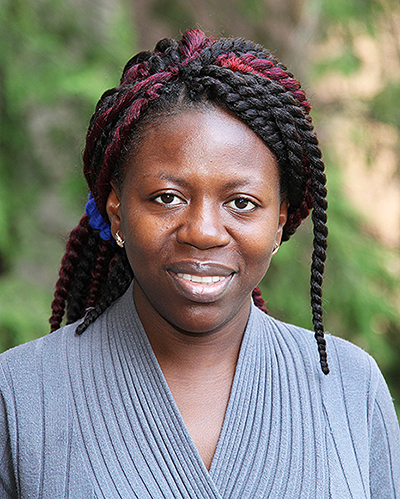 Verra Ngwa (Cancer Biology, Jin Chen lab) has received the 2020 Minority Scholar Award from the American Association for Cancer Research. Verra Ngwa (Cancer Biology, Jin Chen lab) has received the 2020 Minority Scholar Award from the American Association for Cancer Research.
Increasing diversity in Alzheimer’s research
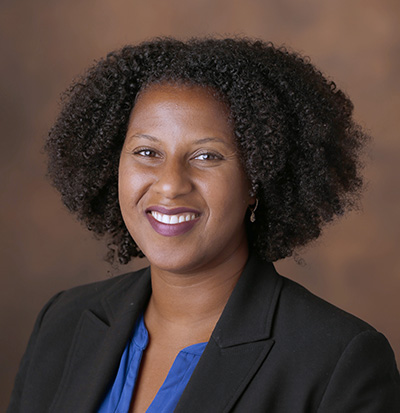 The NIH has awarded Renã Robinson (Chemistry) a $2.5 million grant to help her develop and implement resources designed to bring more African American participants into Alzheimer’s disease research. The NIH has awarded Renã Robinson (Chemistry) a $2.5 million grant to help her develop and implement resources designed to bring more African American participants into Alzheimer’s disease research.
Watkins student award for Ildefonso
 The Levi Watkins, Jr. Student Award is presented annually to at least one graduate student and one medical student who have made outstanding contributions toward fostering a more diverse environment that is enriching, encouraging, and embracing of all Vanderbilt medical school students, faculty, and administrators. This year, the award was presented to graduate student Geena Ildefonso (CPB, Vito Quaranta) and medical student Jaqueline Antoun at the beginning of the Levi Watkins, Jr., MD Lecture on October 6. The Levi Watkins, Jr. Student Award is presented annually to at least one graduate student and one medical student who have made outstanding contributions toward fostering a more diverse environment that is enriching, encouraging, and embracing of all Vanderbilt medical school students, faculty, and administrators. This year, the award was presented to graduate student Geena Ildefonso (CPB, Vito Quaranta) and medical student Jaqueline Antoun at the beginning of the Levi Watkins, Jr., MD Lecture on October 6.
Colowick Award for Sheedlo, Beebout
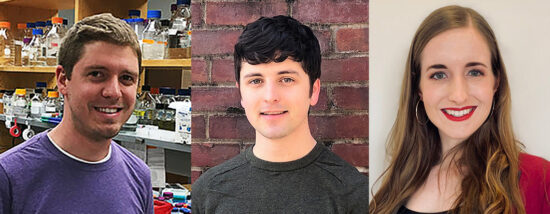 The 2020 Sidney Colowick Awards in the Department of Pathology, Microbiology and Immunology have been presented to postdoc Michael Sheedlo (Borden Lacy lab) and graduate students Connor Beebout (MHI, Maria Hadjifrangiskou lab) and Laura Powell (MPI, James Crowe lab). The 2020 Sidney Colowick Awards in the Department of Pathology, Microbiology and Immunology have been presented to postdoc Michael Sheedlo (Borden Lacy lab) and graduate students Connor Beebout (MHI, Maria Hadjifrangiskou lab) and Laura Powell (MPI, James Crowe lab).
Glass earns Professional Development & Training Grant
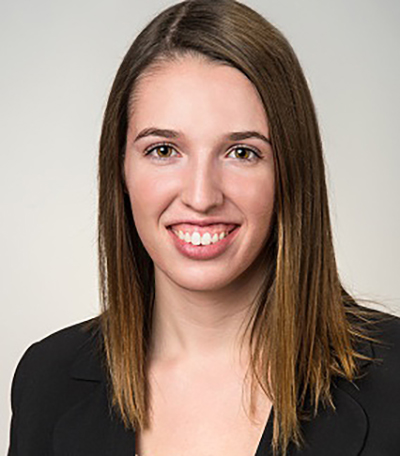 Graduate student Sarah M. Glass (Biochemistry, lab of Fred Guengerich) has received a Professional Development & Training Grant, which provides up to $1000 of support for graduate students seeking professional development and training opportunities to further develop their academic and professional skills, from the Russell G. Hamilton Graduate Leadership Institute at Vanderbilt. Graduate student Sarah M. Glass (Biochemistry, lab of Fred Guengerich) has received a Professional Development & Training Grant, which provides up to $1000 of support for graduate students seeking professional development and training opportunities to further develop their academic and professional skills, from the Russell G. Hamilton Graduate Leadership Institute at Vanderbilt.
Byndloss, Rathmell recognized by students
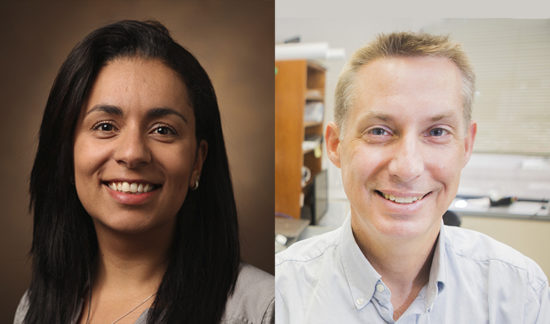 Ph.D. students from the Molecular Pathogenesis Division have recognized two faculty for their teaching. The students from the Microbe-Host Interactions program recognized Mariana Byndloss (PMI), and the students from the Molecular Pathology and Immunology program recognized Jeff Rathmell (PMI) with the Charles Randall Prize in Pathology, Microbiology and Immunology. Ph.D. students from the Molecular Pathogenesis Division have recognized two faculty for their teaching. The students from the Microbe-Host Interactions program recognized Mariana Byndloss (PMI), and the students from the Molecular Pathology and Immunology program recognized Jeff Rathmell (PMI) with the Charles Randall Prize in Pathology, Microbiology and Immunology.
Kruse receives HIRN Scholarship
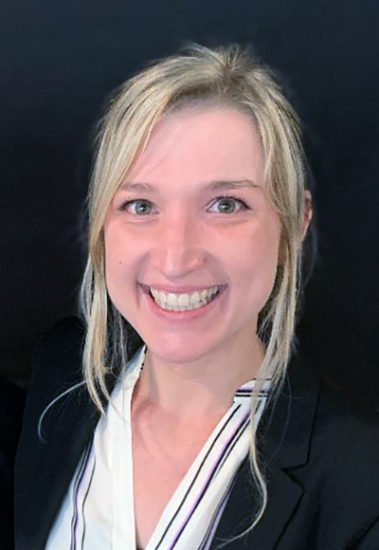 Angela Kruse, a postdoctoral fellow in the lab of Richard Caprioli (Biochemistry), just received a 2020 Human Islet Research Network Scholarship. Nine graduate students and postdocs were selected for this scholarship from a nationwide submission of abstracts. Angela Kruse, a postdoctoral fellow in the lab of Richard Caprioli (Biochemistry), just received a 2020 Human Islet Research Network Scholarship. Nine graduate students and postdocs were selected for this scholarship from a nationwide submission of abstracts.
Fellowships for trainees
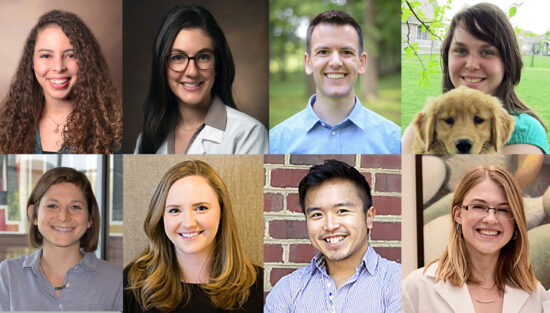 This month, we’re proud to share with you that the following graduate students and postdocs received fellowships from the indicated organizations: Kellie Williford (Neuroscience, Danny Winder lab), Caroline Nebhan (Cancer Biology, Ann Richmond lab), and Alexander Silver (Cancer Biology, Michael Savona lab), NIH; Jennifer Gribble (MHI, Mark Denison lab) and Lauren Saag (Epidemiology, Tim Sterling lab), National Institute of Allergy and Infectious Diseases; Tessa Huffstater (Biomedical Engineering, David Merryman lab), National Institute of Diabetes & Digestive & Kidney Disease; Tin Nguyen (Neuroscience, Laurie Cutting lab), National Institute of Child Health and Human Development; and Katherine Amidon (Biological Sciences, Brandt Eichman lab), National Institute of Environmental Health Sciences. This month, we’re proud to share with you that the following graduate students and postdocs received fellowships from the indicated organizations: Kellie Williford (Neuroscience, Danny Winder lab), Caroline Nebhan (Cancer Biology, Ann Richmond lab), and Alexander Silver (Cancer Biology, Michael Savona lab), NIH; Jennifer Gribble (MHI, Mark Denison lab) and Lauren Saag (Epidemiology, Tim Sterling lab), National Institute of Allergy and Infectious Diseases; Tessa Huffstater (Biomedical Engineering, David Merryman lab), National Institute of Diabetes & Digestive & Kidney Disease; Tin Nguyen (Neuroscience, Laurie Cutting lab), National Institute of Child Health and Human Development; and Katherine Amidon (Biological Sciences, Brandt Eichman lab), National Institute of Environmental Health Sciences.
HIGHLIGHTS
Carrasco on list of 100 inspiring Hispanic/Latinx scientists
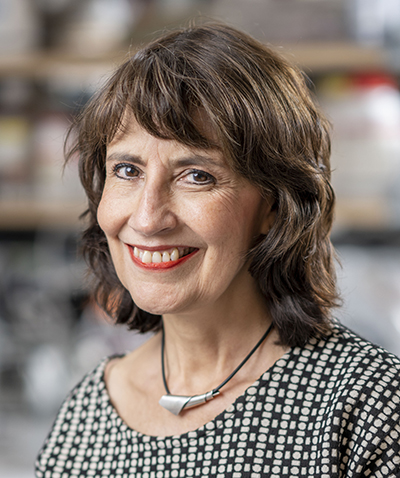 Nancy Carrasco, department chair and professor of Molecular Physiology and Biophysics, has been recognized as one of 100 inspiring Hispanic/Latinx scientists in the United States. This list was put together in honor of National Hispanic Heritage Month and comes on the heels of two lists of 100 inspiring Black scientists, both of which have also recognized Vanderbilt scholars. Nancy Carrasco, department chair and professor of Molecular Physiology and Biophysics, has been recognized as one of 100 inspiring Hispanic/Latinx scientists in the United States. This list was put together in honor of National Hispanic Heritage Month and comes on the heels of two lists of 100 inspiring Black scientists, both of which have also recognized Vanderbilt scholars.
Visiting scholar recounts Vanderbilt, pandemic experience
 Back in March, Naotoshi Nakamura came to Nashville to give a talk, and stayed to become part of a lab’s family. Read his account of his time in Nashville and at Vanderbilt right at the onset of the pandemic. Nakamura has since returned to his home in Japan, but remains a part of Vanderbilt as an Adjoint Assistant Professor in Biochemistry. Back in March, Naotoshi Nakamura came to Nashville to give a talk, and stayed to become part of a lab’s family. Read his account of his time in Nashville and at Vanderbilt right at the onset of the pandemic. Nakamura has since returned to his home in Japan, but remains a part of Vanderbilt as an Adjoint Assistant Professor in Biochemistry.
Calipari pens guest column
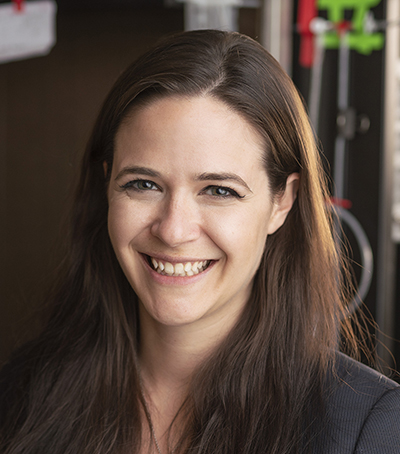 Erin Calipari (Pharmacology) recently wrote a guest column for The Tennessean in which she discusses the devastating effect of the pandemic on another epidemic: the opioid addiction crisis. Erin Calipari (Pharmacology) recently wrote a guest column for The Tennessean in which she discusses the devastating effect of the pandemic on another epidemic: the opioid addiction crisis.
Crowe and his research highlighted by NPR
 Science journalist Joe Palca recently interviewed James Crowe in a piece focused on how the current pandemic has challenged the Defense Advanced Research Projects Agency’s pandemic preparedness program. Crowe’s lab received DARPA funds to develop a COVID-19 antibody therapy. Science journalist Joe Palca recently interviewed James Crowe in a piece focused on how the current pandemic has challenged the Defense Advanced Research Projects Agency’s pandemic preparedness program. Crowe’s lab received DARPA funds to develop a COVID-19 antibody therapy.
Flu shots for everyone with FLUla-2-Uza!
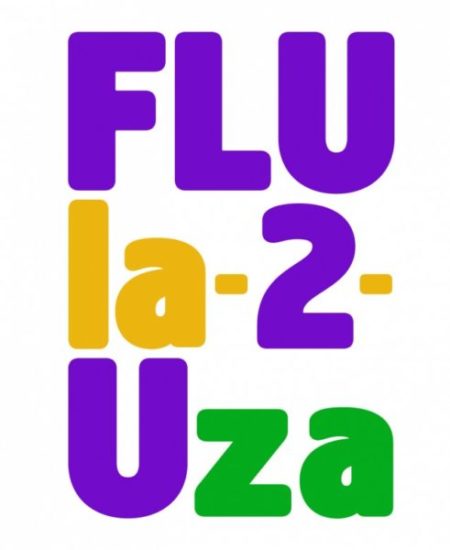 This year, instead of the annual, massive vaccination event Flulapalooza, Vanderbilt is hosting the FLUla-2-Uza campaign from September 8 through December 1. Students can get the vaccine for free at the Student Health Center. Employees can find details on where they can receive their free shot, how to submit vaccination records or exemption requests, and how to request an on-site event on the Employee Influenza Vaccine Program website. Note that the Occupational Health Clinic will set up a flu shot station in the North Lobby of Light Hall every Monday in October and November from 12:00 PM until 5:00 PM. Get your flu shot, even if you’re working remotely! This year, instead of the annual, massive vaccination event Flulapalooza, Vanderbilt is hosting the FLUla-2-Uza campaign from September 8 through December 1. Students can get the vaccine for free at the Student Health Center. Employees can find details on where they can receive their free shot, how to submit vaccination records or exemption requests, and how to request an on-site event on the Employee Influenza Vaccine Program website. Note that the Occupational Health Clinic will set up a flu shot station in the North Lobby of Light Hall every Monday in October and November from 12:00 PM until 5:00 PM. Get your flu shot, even if you’re working remotely!
Vanderbilt Prize winner earns Nobel Prize
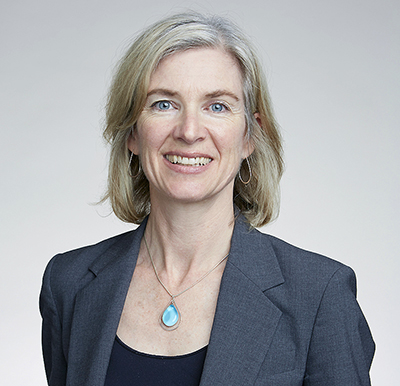 Jennifer Doudna, Li Ka Shing Chancellor’s Chair in Biomedical and Health Sciences at UC Berkeley and recipient of the 2020 Vanderbilt Prize, has been awarded the Nobel Prize in Chemistry for her role in the development of the genome editing technology known as CRISPR-Cas9. Doudna shares the prize with collaborator Emanuelle Charpentier. Jennifer Doudna, Li Ka Shing Chancellor’s Chair in Biomedical and Health Sciences at UC Berkeley and recipient of the 2020 Vanderbilt Prize, has been awarded the Nobel Prize in Chemistry for her role in the development of the genome editing technology known as CRISPR-Cas9. Doudna shares the prize with collaborator Emanuelle Charpentier.
Thank you, postdocs!
The week of September 21 to 25 was National Postdoc Appreciation Week, and, besides the events hosted by the National Postdoc Association, Vanderbilt itself held several events to celebrate their contributions. Did you happen to catch Dean Marnett’s message to postdocs?
Henderson co-founder of Black in Cancer week
 Henry Henderson, III, a postdoc in the lab of Christine Lovly (Medicine), is one of the cofounders of the @BlackInCancer movement (Twitter, Instagram), which is hosting a #BlackInCancerWeek between October 11 and 17. #BlackInCancerWeek follows in the footsteps of other Black In _____ social media movements, all of which aim to highlight Black researchers and elevate Black voices and scholarship within different STEM fields (other movements include #BlackBirdersWeek, @BlackInMicro, @BlackInNeuro, @BlackInChem, etc.). Follow them to expand your networks! Henry Henderson, III, a postdoc in the lab of Christine Lovly (Medicine), is one of the cofounders of the @BlackInCancer movement (Twitter, Instagram), which is hosting a #BlackInCancerWeek between October 11 and 17. #BlackInCancerWeek follows in the footsteps of other Black In _____ social media movements, all of which aim to highlight Black researchers and elevate Black voices and scholarship within different STEM fields (other movements include #BlackBirdersWeek, @BlackInMicro, @BlackInNeuro, @BlackInChem, etc.). Follow them to expand your networks!
Experiencing Zoom fatigue? We have some tips for you
 Zoom (or videoconferencing) fatigue is real. What causes it? How do you combat it? Get some tips for how to survive remote work situations when all your meetings are video meetings. Zoom (or videoconferencing) fatigue is real. What causes it? How do you combat it? Get some tips for how to survive remote work situations when all your meetings are video meetings.
STAFF FEATURE
FIRM
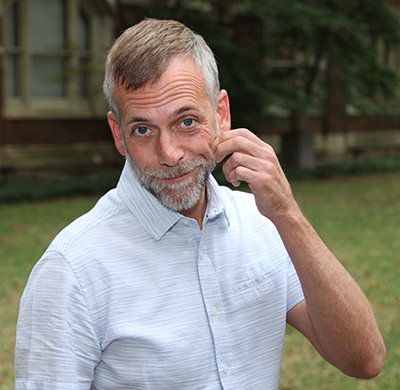 Welcome to our new staff feature section! For our first highlight, we wanted to recognize the efforts of the entire staff of the Office of Facilities, Infrastructure and Risk Management, led by Assistant Dean Anthony Tharp. On a good day, they are responsible for managing our physical space, but this year they have also risen to the challenge of maintaining our buildings running and safe during the lockdown and ongoing pandemic. Welcome to our new staff feature section! For our first highlight, we wanted to recognize the efforts of the entire staff of the Office of Facilities, Infrastructure and Risk Management, led by Assistant Dean Anthony Tharp. On a good day, they are responsible for managing our physical space, but this year they have also risen to the challenge of maintaining our buildings running and safe during the lockdown and ongoing pandemic.
NEW DISCOVERIES
Reversing intestinal inflammation
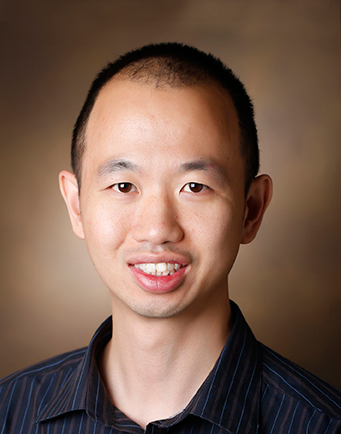 Crohn’s disease and inflammatory bowel disease both present with inflammation in the small intestine. Research from the Ken Lau (CDB) lab indicates that stimulating tuft cell production induces an immune reaction that could reverse the inflammation. Crohn’s disease and inflammatory bowel disease both present with inflammation in the small intestine. Research from the Ken Lau (CDB) lab indicates that stimulating tuft cell production induces an immune reaction that could reverse the inflammation.
Structures of the mitochondrial complex II
 Tina Iverson’s (Pharmacology) lab just published an X-ray structure of a mitochondrial complex II subunit and its dedicated assembly factor. Complex II is a critical component of the mitochondria’s energy-producing processes, and defects are associated with severe disease phenotypes. Tina Iverson’s (Pharmacology) lab just published an X-ray structure of a mitochondrial complex II subunit and its dedicated assembly factor. Complex II is a critical component of the mitochondria’s energy-producing processes, and defects are associated with severe disease phenotypes.
New technique helps ID host-virus protein interactions
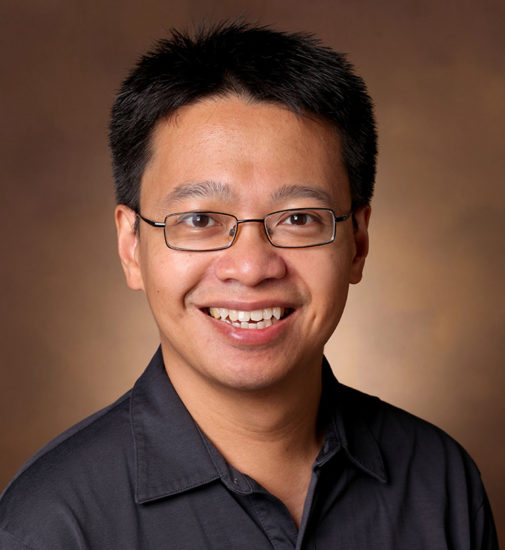 The lab of Manny Ascano (Biochemistry) has developed a new technique called VIR-CLASP to help researchers ID, analyze, and compare intrinsic immunity factors that are deployed upon first contact with an invading RNA virus. The lab of Manny Ascano (Biochemistry) has developed a new technique called VIR-CLASP to help researchers ID, analyze, and compare intrinsic immunity factors that are deployed upon first contact with an invading RNA virus.
Microtubule treadmilling replicated in vitro
 Attempts to recreate microtubule treadmilling in vitro has historically resulted in treadmilling in the direction opposite what is observed in cells. Research from the lab of Marija Zanic (CDB) found that the addition of 4 proteins results in treadmilling in the correct direction. Attempts to recreate microtubule treadmilling in vitro has historically resulted in treadmilling in the direction opposite what is observed in cells. Research from the lab of Marija Zanic (CDB) found that the addition of 4 proteins results in treadmilling in the correct direction.
Exocyst mutations and developmental defects
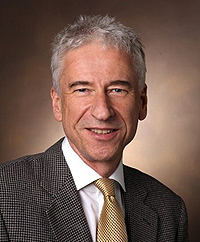 Work from an international collaboration that includes the lab of Ian Macara (CDB) has found that specific mutations within exocysts cause severe developmental defects in children. Work from an international collaboration that includes the lab of Ian Macara (CDB) has found that specific mutations within exocysts cause severe developmental defects in children.
Lipids’ influence on membrane proteins
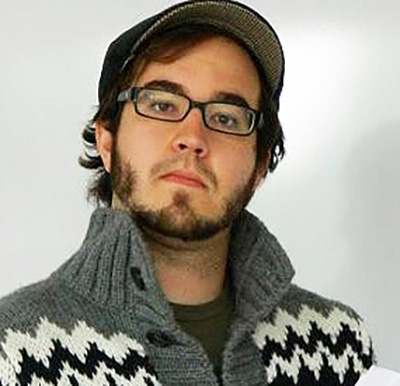 Recent research on how membrane proteins’ shape and behavior can be altered depending on the type of lipids they’re in contact with, led by Vanderbilt University investigators, was recently featured by Phys.org. Graduate student and study co-author James Hutchison (Biochemistry, Chuck Sanders lab) was quoted. Recent research on how membrane proteins’ shape and behavior can be altered depending on the type of lipids they’re in contact with, led by Vanderbilt University investigators, was recently featured by Phys.org. Graduate student and study co-author James Hutchison (Biochemistry, Chuck Sanders lab) was quoted.
Two myosin motors implicated in cell division
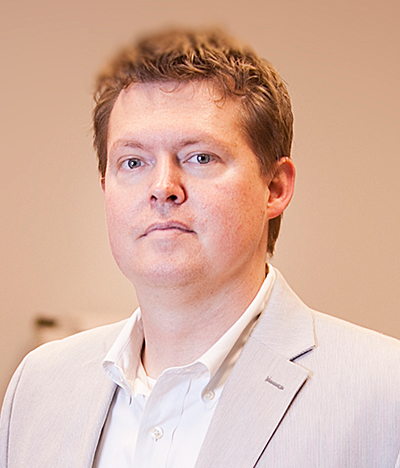 Research from the lab of Dylan Burnette (CDB) has determined that myosin IIA and myosin IIB mediate cortex tension and bleb formation at the cell cortex during cell division. Research from the lab of Dylan Burnette (CDB) has determined that myosin IIA and myosin IIB mediate cortex tension and bleb formation at the cell cortex during cell division.
MYCN in triple-negative breast cancer
 Expression of the oncogene MYCN makes tumors more aggressive. Research from the lab of Jennifer Pietenpol (Biochemistry) found that MYCN is often overexpressed in TNBC tumors, and that those tumors are susceptible to two inhibitors. Expression of the oncogene MYCN makes tumors more aggressive. Research from the lab of Jennifer Pietenpol (Biochemistry) found that MYCN is often overexpressed in TNBC tumors, and that those tumors are susceptible to two inhibitors.
On pancreatic β-cells fitness and function
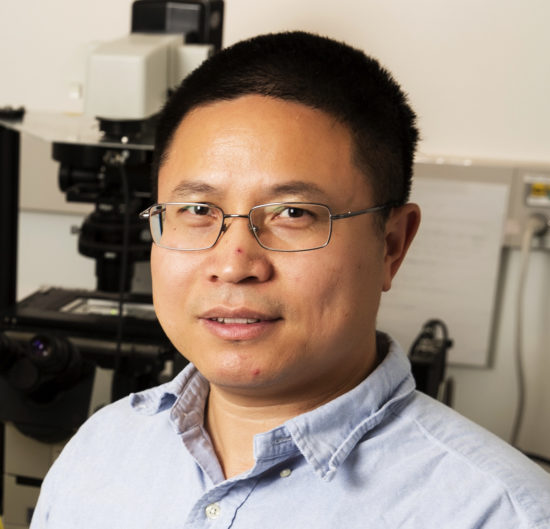 Guoqiang Gu’s (CDB) lab recently clarified the role of the transcriptional coregulator Sin3 in the embryonic development and postnatal function of pancreatic β-cells, which produce insulin. Guoqiang Gu’s (CDB) lab recently clarified the role of the transcriptional coregulator Sin3 in the embryonic development and postnatal function of pancreatic β-cells, which produce insulin.
Changing the polarity of growth
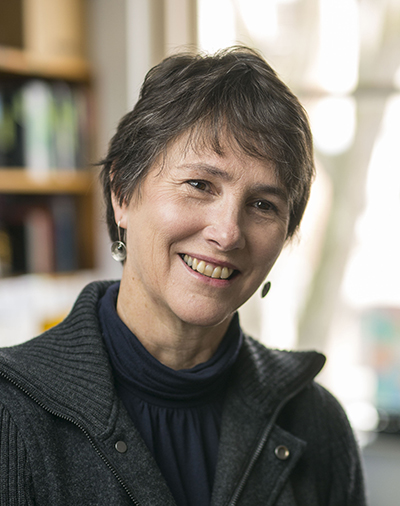 The lab of Kathy Gould (CDB) recently published work highlighting the impact of signaling pathways on how Saccharomyces pombe switches (or doesn’t) from monopolar to bipolar growth during cell division. This paper and one of its first authors, graduate student Tony Rossi, were featured in the journal’s First Person series. The lab of Kathy Gould (CDB) recently published work highlighting the impact of signaling pathways on how Saccharomyces pombe switches (or doesn’t) from monopolar to bipolar growth during cell division. This paper and one of its first authors, graduate student Tony Rossi, were featured in the journal’s First Person series.
Strengthening wall defenses
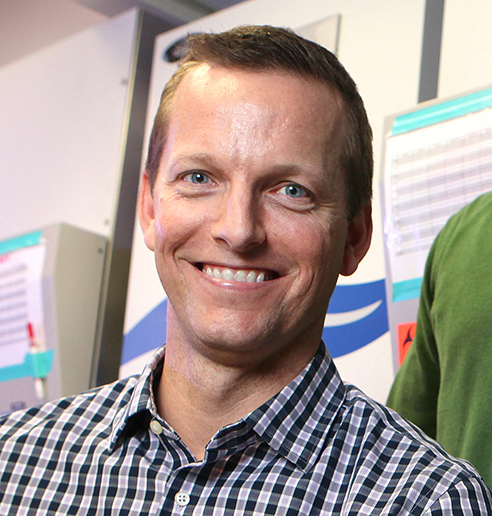 Work from the lab of Eric Skaar (PMI) shows that A. baumannii regulates its outer membrane with the help of a maintenance system called Mla, which uses it to rapidly evolve resistance to antibiotics and host stresses. Work from the lab of Eric Skaar (PMI) shows that A. baumannii regulates its outer membrane with the help of a maintenance system called Mla, which uses it to rapidly evolve resistance to antibiotics and host stresses.
Dlgap2 decline associated with Alzheimer’s
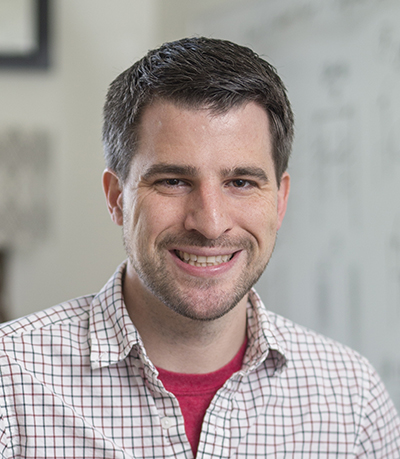 The lab of Timothy Hohman (Neurology) has found that reduced expression of the Dlgap2 protein, important for signaling across synapses, is associated with faster cognitive decline in Alzheimer’s patients and a higher number of plaques and tangles in autopsied patient brains. The lab of Timothy Hohman (Neurology) has found that reduced expression of the Dlgap2 protein, important for signaling across synapses, is associated with faster cognitive decline in Alzheimer’s patients and a higher number of plaques and tangles in autopsied patient brains.
Gene variant linked to penicillin allergy
 The lab of Elizabeth Phillips (Medicine) recently analyzed the genetic information of over half a million subjects and determined that individuals of European descent who carried a specific genetic variant were 47% more likely to have a self-reported penicillin allergy. The lab of Elizabeth Phillips (Medicine) recently analyzed the genetic information of over half a million subjects and determined that individuals of European descent who carried a specific genetic variant were 47% more likely to have a self-reported penicillin allergy.
| ![CAS - Basic Sciences - Internal E-Newsletter [Vanderbilt University]](https://cdn.vanderbilt.edu/vu-URL/wp-content/uploads/sites/119/2021/04/19142723/basically-speaking-banner-04-2021.jpg)
 Kathy Gould (CDB), who previously served as associate dean for Biomedical Sciences,
Kathy Gould (CDB), who previously served as associate dean for Biomedical Sciences,  Linda Sealy, who served as the Basic Sciences associate dean for diversity, equity, and inclusion, will continue to serve our community following her retirement in August as Senior Advisor to the Dean for Diversity, Equity, and Inclusion. She will be focusing on increasing faculty diversity; advancing equity and inclusion through training to promote culturally aware, effective mentorship; leading a new coordinating committee for the newly formed department and program diversity and inclusion committees; providing education to trainees on bias through
Linda Sealy, who served as the Basic Sciences associate dean for diversity, equity, and inclusion, will continue to serve our community following her retirement in August as Senior Advisor to the Dean for Diversity, Equity, and Inclusion. She will be focusing on increasing faculty diversity; advancing equity and inclusion through training to promote culturally aware, effective mentorship; leading a new coordinating committee for the newly formed department and program diversity and inclusion committees; providing education to trainees on bias through  Scott Hiebert (Biochemistry) has been
Scott Hiebert (Biochemistry) has been  The Vanderbilt
The Vanderbilt 
 The National Institute on Aging has funded a grant for neurology Professor Angela Jefferson to
The National Institute on Aging has funded a grant for neurology Professor Angela Jefferson to  The Stanley Cohen Innovation Fund
The Stanley Cohen Innovation Fund  Vanderblt researchers, including Alissa Weaver (CDB) have received a $500,000
Vanderblt researchers, including Alissa Weaver (CDB) have received a $500,000  Verra Ngwa (Cancer Biology, Jin Chen lab) has
Verra Ngwa (Cancer Biology, Jin Chen lab) has  The NIH has
The NIH has  The
The  The 2020 Sidney Colowick Awards in the Department of Pathology, Microbiology and Immunology
The 2020 Sidney Colowick Awards in the Department of Pathology, Microbiology and Immunology  Graduate student Sarah M. Glass (Biochemistry, lab of Fred Guengerich) has received a
Graduate student Sarah M. Glass (Biochemistry, lab of Fred Guengerich) has received a  Ph.D. students from the Molecular Pathogenesis Division have
Ph.D. students from the Molecular Pathogenesis Division have  Angela Kruse, a postdoctoral fellow in the lab of Richard Caprioli (Biochemistry), just received a
Angela Kruse, a postdoctoral fellow in the lab of Richard Caprioli (Biochemistry), just received a  This month, we’re proud to share with you that the following graduate students and postdocs received fellowships from the indicated organizations: Kellie Williford (Neuroscience, Danny Winder lab), Caroline Nebhan (Cancer Biology, Ann Richmond lab), and Alexander Silver (Cancer Biology, Michael Savona lab), NIH; Jennifer Gribble (MHI, Mark Denison lab) and Lauren Saag (Epidemiology, Tim Sterling lab), National Institute of Allergy and Infectious Diseases; Tessa Huffstater (Biomedical Engineering, David Merryman lab), National Institute of Diabetes & Digestive & Kidney Disease; Tin Nguyen (Neuroscience, Laurie Cutting lab), National Institute of Child Health and Human Development; and Katherine Amidon (Biological Sciences, Brandt Eichman lab), National Institute of Environmental Health Sciences.
This month, we’re proud to share with you that the following graduate students and postdocs received fellowships from the indicated organizations: Kellie Williford (Neuroscience, Danny Winder lab), Caroline Nebhan (Cancer Biology, Ann Richmond lab), and Alexander Silver (Cancer Biology, Michael Savona lab), NIH; Jennifer Gribble (MHI, Mark Denison lab) and Lauren Saag (Epidemiology, Tim Sterling lab), National Institute of Allergy and Infectious Diseases; Tessa Huffstater (Biomedical Engineering, David Merryman lab), National Institute of Diabetes & Digestive & Kidney Disease; Tin Nguyen (Neuroscience, Laurie Cutting lab), National Institute of Child Health and Human Development; and Katherine Amidon (Biological Sciences, Brandt Eichman lab), National Institute of Environmental Health Sciences. Nancy Carrasco, department chair and professor of Molecular Physiology and Biophysics, has been recognized as one of
Nancy Carrasco, department chair and professor of Molecular Physiology and Biophysics, has been recognized as one of  Back in March, Naotoshi Nakamura came to Nashville to give a talk, and stayed to become part of a lab’s family. Read
Back in March, Naotoshi Nakamura came to Nashville to give a talk, and stayed to become part of a lab’s family. Read  Erin Calipari (Pharmacology) recently wrote a
Erin Calipari (Pharmacology) recently wrote a  Science journalist Joe Palca
Science journalist Joe Palca  This year, instead of the annual, massive vaccination event Flulapalooza, Vanderbilt is hosting the
This year, instead of the annual, massive vaccination event Flulapalooza, Vanderbilt is hosting the  Jennifer Doudna, Li Ka Shing Chancellor’s Chair in Biomedical and Health Sciences at UC Berkeley and recipient of the 2020 Vanderbilt Prize, has been
Jennifer Doudna, Li Ka Shing Chancellor’s Chair in Biomedical and Health Sciences at UC Berkeley and recipient of the 2020 Vanderbilt Prize, has been  Henry Henderson, III, a postdoc in the lab of Christine Lovly (Medicine), is
Henry Henderson, III, a postdoc in the lab of Christine Lovly (Medicine), is  Zoom (or videoconferencing) fatigue is real. What causes it? How do you combat it? Get some
Zoom (or videoconferencing) fatigue is real. What causes it? How do you combat it? Get some  Welcome to our new staff feature section! For
Welcome to our new staff feature section! For  Crohn’s disease and inflammatory bowel disease both present with inflammation in the small intestine. Research from the Ken Lau (CDB) lab indicates that stimulating tuft cell production induces an immune reaction that could
Crohn’s disease and inflammatory bowel disease both present with inflammation in the small intestine. Research from the Ken Lau (CDB) lab indicates that stimulating tuft cell production induces an immune reaction that could  Tina Iverson’s (Pharmacology) lab just published an
Tina Iverson’s (Pharmacology) lab just published an  The lab of Manny Ascano (Biochemistry) has developed a
The lab of Manny Ascano (Biochemistry) has developed a  Attempts to recreate microtubule treadmilling in vitro has historically resulted in treadmilling in the direction opposite what is observed in cells. Research from the lab of Marija Zanic (CDB) found that the addition of 4 proteins results in
Attempts to recreate microtubule treadmilling in vitro has historically resulted in treadmilling in the direction opposite what is observed in cells. Research from the lab of Marija Zanic (CDB) found that the addition of 4 proteins results in  Work from an international collaboration that includes the lab of Ian Macara (CDB) has found that
Work from an international collaboration that includes the lab of Ian Macara (CDB) has found that  Recent research on how membrane proteins’ shape and behavior can be altered depending on the type of lipids they’re in contact with, led by Vanderbilt University investigators, was
Recent research on how membrane proteins’ shape and behavior can be altered depending on the type of lipids they’re in contact with, led by Vanderbilt University investigators, was  Research from the lab of Dylan Burnette (CDB) has determined that myosin IIA and myosin IIB mediate
Research from the lab of Dylan Burnette (CDB) has determined that myosin IIA and myosin IIB mediate  Expression of the oncogene MYCN makes tumors more aggressive. Research from the lab of Jennifer Pietenpol (Biochemistry) found that
Expression of the oncogene MYCN makes tumors more aggressive. Research from the lab of Jennifer Pietenpol (Biochemistry) found that  Guoqiang Gu’s (CDB) lab recently clarified the role of the
Guoqiang Gu’s (CDB) lab recently clarified the role of the  The lab of Kathy Gould (CDB) recently published work highlighting the impact of signaling pathways on how Saccharomyces pombe
The lab of Kathy Gould (CDB) recently published work highlighting the impact of signaling pathways on how Saccharomyces pombe  Work from the lab of Eric Skaar (PMI) shows that A. baumannii regulates its outer membrane with the help of a maintenance system called Mla, which uses it to
Work from the lab of Eric Skaar (PMI) shows that A. baumannii regulates its outer membrane with the help of a maintenance system called Mla, which uses it to  The lab of Timothy Hohman (Neurology) has found that
The lab of Timothy Hohman (Neurology) has found that  The lab of Elizabeth Phillips (Medicine) recently
The lab of Elizabeth Phillips (Medicine) recently 







